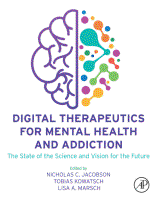
Abstract
This chapter offers a conceptual framework that ties together two domains of design decisions for digital therapeutics—those related to intervention design (i.e., which components or treatments to include) and those related to study design (i.e., how to test whether components or treatments work as intended). This framework is intended to help researchers in identifying and testing key digital therapeutics design considerations across the intervention development lifespan—that is, from formative work through longer-term implementation. The framework encourages intervention developers to make design decisions by considering three motivating questions: first, what health outcomes are we trying to impact; second, what are we trying to learn; and third, cross-cutting both prior questions to inform potential evidence, how much is at stake in terms of health impacts if we get this decision wrong? We consider how these questions can help to inform design decisions across three phases of the intervention lifespan—preparation and formative work, optimization of intervention components, and evaluation of effectiveness and implementation—to maximize the likelihood of positive health impact and accumulation of evidence about the intervention’s functioning.